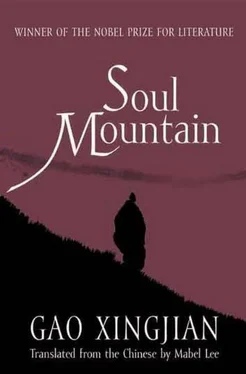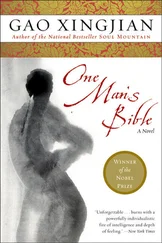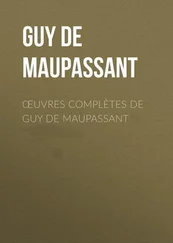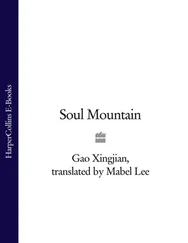I still think of him and his practical attitude of rejecting fame and wealth and also the gloomy other side of the single-log bridge in the bend of the river, the village settlement with the wooden houses which have gone black, the savage Alsatian with the grey-black fur, and the crazy woman with the snake on the carrying pole. These all seem to be hinting at something, just like the huge gloomy mountain behind the small building. There is something more to it all which I will never be able to fully understand.
You are walking in mud and fine rain is falling, it is quiet on the road except for the squelching of the mud sticking to your shoes. You say she has to walk where the mud is firmer but straightaway you hear a plop. You turn and see that she has fallen and is awkwardly holding herself up with one hand in the mud. You put out your hand to pull her up but her foot slips and the dirty hand which had been holding her up smears mud all over her. You say she really has to take off her high heels. She is crying miserably and plonks herself right into the mud. You say, come on, so you’re a bit dirty but that can be fixed up, there’s a house up ahead and you can have a good wash. But she refuses to go on.
This is women, you say, they want to go travelling in the mountains but don’t want any hardships.
She says she shouldn’t have come walking with you on these lousy mountain roads.
You say it’s not all scenery in the mountains, there’s also wind and rain, she’s already here so she should stop regretting having come.
She says you tricked her, there isn’t a tourist anywhere on this damn Lingshan.
You say if it’s people and not mountains she wants to see, hasn’t she seen plenty on the streets in the cities? If she hasn’t, she can take a trip to the department stores where there’s everything a woman needs, from cakes to cosmetics.
She covers her face with her muddy hands and starts crying like a child. You can’t take anymore, pull her to her feet and help her along.
You say she can’t just stay in the mud and rain, there’s a house up ahead, and if there’s a house there’ll be a fire, and if there’s a fire there will be warmth, and she won’t feel so alone and will be more comfortable.
But you know that behind the crumbling wall in the rain, the stove is in ruins and the pots have rusted away long ago. On this hillock, there are no weeping women ghosts among the clumps of bushes behind the graves decked with paper streamers. At this very moment you dearly wish to find a house to change into some clean clothes and, clean and refreshed, to sit by the fire on a bamboo chair, a bowl of hot tea in your hands, looking at the fine rain drizzling under the eaves outside, telling her a children’s tale which has nothing to do with her, you, or the chaotic human world. She would be like the good little girl of a family on this lonely mountain, sitting on your knee and snuggled in your arms.
You say the god of fire is a prankish naked red boy who appears in forests where trees have been chopped down, stomping loudly on heaps of dry leaves and climbing bare-bottom over fallen branches.
She then starts telling you about her first love, the romance of a young girl, or one could say before she knew about anything: it was a sort of yearning for love. She says he had just returned to the city from the reform-through-labour farm, and was dark and gaunt and looked older than his years with the deep lines on his face. Nevertheless, she had a crush on him and would listen entranced as he told about the hardships he had suffered.
You say this is a very old story you’d heard about your great-grandfather. They said he saw the red boy crawling from under the oak tree he’d cut the previous year and jumping onto a camellia tree. He shook his head, thinking that his old eyes were playing tricks on him. He was on his way down the mountain, hauling a hawthorn log for a boat worker from Loud Water Beach. Hawthorn wood is light, stands up to soaking in water and is good timber for boats.
She says at the time she was just sixteen and he was already forty-seven or forty-eight and could have been her father. He was at university with her father and had been a friend for many years. After the decision on his case had been corrected and he returned to the city, he didn’t have many friends and was always at her house drinking with her father and talking about his experiences during those years in the labour camp when he’d been declared a rightist. As she listened tears would come to her eyes. At the time he was very thin and hadn’t fully recovered, not like after he had been appointed chief engineer and looked quite dashing wearing a patterned wool suit and a white shirt with a starched and ironed collar which was always unbuttoned. But at the time she was totally besotted with him, she wanted to weep for him and wanted desperately to comfort him so that he would be happy the rest of his life. If at that time he had accepted the love of this young girl, she says, she really wouldn’t have worried about anything.
You say your great-grandfather was coming down the mountain shouldering a hawthorn log that was two arm-spans around the girth when he saw the fire god climbing up the trunk of the camellia tree. He couldn’t stop abruptly and was afraid to keep looking. He got home, put the log by the door, and before going into the house was saying that bad fortune was upon them! Everyone at home questioned him. You say that at the time your grandfather was still alive and he asked your great-grandfather what was wrong. Your great-grandfather said he’d seen the red boy, the fire god Zhurong and that the good days were over!
But he was totally oblivious to it, he was a simpleton, she says. She only told him after she had been at university for a few years. He said he had a wife and a son and that while he was in the labour camp his wife had waited twenty whole years for him; his son was even older than her. And her father has been a friend for many years, what would he think of him? You cowardly creep! You cowardly creep! She says at the time she wept as she swore at him. She says, even the date was her idea. She was with her father at the door saying goodbye to him when she made up an excuse and said she had to see a girl who used to live in the same building when she was little, and so they left together. She normally addressed him as Uncle Cai and she still called him this. She said, Uncle Cai, she had something to talk to him about. He said fine, we can talk now, we can talk as we walk along. She said no, she couldn’t on the street. He thought for a while and said they could talk in the park. He said there was a restaurant at the gate of the park and he invited her to have dinner with him.
You say that afterwards disasters really came one after another. You say at the time you were too small to carry a blunderbuss and couldn’t go hunting with your father but could only take a hoe into the bamboo grove with him to dig up winter shoots. Your father said that by that time your great-grandfather’s back was already bent and he had a big fleshy tumour on his neck, caused by hauling logs since he was small. When your great-grandfather was young, your father said, he was a great hunter without peer, but within two days of seeing the red boy, he was dead — the bullet went through the back of his head and exploded in his left eye. He lay at the door of the house in a pool of blood, if he’d reached out he would have touched the doorsill. The root of the old camphor tree in the yard was splashed with purple-black lumps of blood. He had pulled himself up by the root of the tree, he didn’t have time to go around the bend to come up by the stone steps. He had crawled until he was almost in reach of the doorsill when he stopped breathing. Your great-grandmother discovered him when she got up early the next morning to feed the pigs, she hadn’t heard him call out during the night.
Читать дальше
Конец ознакомительного отрывка
Купить книгу












